Following in the Footsteps of the Psychology Experts
Wouldn’t it be wonderful to feel secure in the knowledge that your trajectory with regards to professional success was optimal and on a path of least resistance? Wouldn’t it be comforting to have insights into the up and downs of a career in psychology—before embarking upon it? Isn’t the popular saying, “I wish I knew then what I know now!” one of life’s truisms? We at CareersInPsychology.org agree. In fact, it is our mission to equip you with the lion’s share of leading-edge knowledge and insights available in your chosen psychology career. That is why we turned to our profiled Experts and asked, “What advice would you give someone who wants to follow in your footsteps?” Here are their answers.
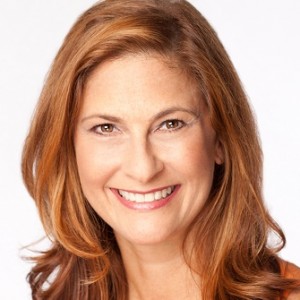 Sari Cooper, LCSW, is an Expert Social Worker and practicing psychotherapist for individuals and couples; she additionally specializes in sex therapy. Her busy practice has locations in both Manhattan's Upper West Side and in Midtown, New York. She has been featured on the Dr. Oz Show and has been interviewed as an expert multiple times on the CBS Morning Show. When we asked Sari what words of wisdom she would impart upon someone aspiring to becoming a social worker/psychotherapist she shared:
Sari Cooper, LCSW, is an Expert Social Worker and practicing psychotherapist for individuals and couples; she additionally specializes in sex therapy. Her busy practice has locations in both Manhattan's Upper West Side and in Midtown, New York. She has been featured on the Dr. Oz Show and has been interviewed as an expert multiple times on the CBS Morning Show. When we asked Sari what words of wisdom she would impart upon someone aspiring to becoming a social worker/psychotherapist she shared:
I would first do some volunteer work before spending time, money and effort on graduate school. It’s important that you get hands-on work to see if you’re cut out for clinical work. I have known people who completed their whole master’s degree only to realize this was not what they wanted to do. I would also recommend giving yourself time to get a full education. Don’t cut corners in order to get out there. Seek out excellent clinical supervisors, if at all possible, both in your graduate program and afterwards, because it’s only in working with a supervisor you’re going to develop your clinical “chops”. (I would work with supervisors for several years when I began my private practice so that I could improve my skills.).
Another thing I would recommend is getting a mentor in your field. It’s great to have someone to give you advice on career options or to point you to the right person with whom to study next.
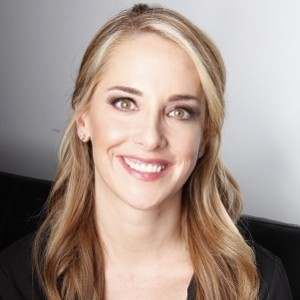 Dr. Lisa Strohman has a Doctorate in Jurisprudence (JD) as well as a Ph.D in Clinical Psychology. Her two professional degrees have made it possible for Dr. Lisa to assist her clients from both a mental health and legal perspective. She is the founder and CEO of the Technology Wellness Center; one of the first organizations dedicated to addressing the global issue of technology addiction and overuse. When asked how she would advise someone wanting to follow in her footsteps she replied:
Dr. Lisa Strohman has a Doctorate in Jurisprudence (JD) as well as a Ph.D in Clinical Psychology. Her two professional degrees have made it possible for Dr. Lisa to assist her clients from both a mental health and legal perspective. She is the founder and CEO of the Technology Wellness Center; one of the first organizations dedicated to addressing the global issue of technology addiction and overuse. When asked how she would advise someone wanting to follow in her footsteps she replied:
First, I would advise them to look at how a dual degree would benefit them and help them reach their goals. Thinking about what motivates you is also an important first step. School is expensive, so it is important to consider how you may want to use your education and what you will find rewarding in the long term. A dual degree offers a lot of options, but takes a lot of hard work and time to complete– so be prepared. If the dual degree is a path you want to pursue, it’s worth it.
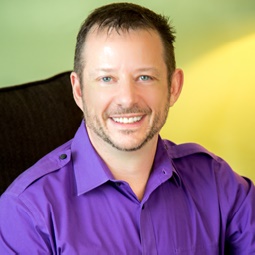 Dr. David Barker-Hargrove, is an Expert Psychologist who specializes in GLBT & Sexuality, Psychotherapy, Life Coaching and Post Traumatic Stress Disorder (PTSD). Dr. David brings to his practice a wealth of wisdom stemming from his diverse life experiences, both personally and professionally. In addition to being a combat veteran, he is nationally recognized as an expert in the field of gender transition. Currently in private practice in Orlando, Florida, Dr. David’s #1 piece of advice was:
Dr. David Barker-Hargrove, is an Expert Psychologist who specializes in GLBT & Sexuality, Psychotherapy, Life Coaching and Post Traumatic Stress Disorder (PTSD). Dr. David brings to his practice a wealth of wisdom stemming from his diverse life experiences, both personally and professionally. In addition to being a combat veteran, he is nationally recognized as an expert in the field of gender transition. Currently in private practice in Orlando, Florida, Dr. David’s #1 piece of advice was:
Learn how to become a business person and develop an entrepreneurial mindset!!!!! There is no business education in counselor training and most therapists don’t even know they need it. I didn’t for years and just assumed my lackluster business returns were the typical result of the choice of being in private practice and having to put up with managed care. NOT SO! Get business training. It will change your life.
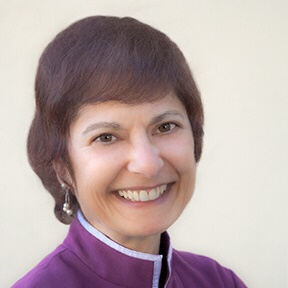 Dr. Jeanette Raymond is an Expert Clinical Psychologist who specializes in Anger Management in her Los Angeles-based private practice. Dr. Raymond helps her clients to overcome mind-body distress which accompanies anger as well troubling collateral issues which arise in relationships, professional performance and health. Geared for those wanting to specialize in relationships, her advice was the following;
Dr. Jeanette Raymond is an Expert Clinical Psychologist who specializes in Anger Management in her Los Angeles-based private practice. Dr. Raymond helps her clients to overcome mind-body distress which accompanies anger as well troubling collateral issues which arise in relationships, professional performance and health. Geared for those wanting to specialize in relationships, her advice was the following;
Don’t think that as soon as you get licensed you are perfectly equipped to work with relationship problems. You learn more after you get your credentials, as you allow experience, error and client fears to open you to more ways of understanding. If you want to help people in the long-term and not just manage their symptoms, go for psychodynamic work. It’s a long slog and you have to be willing to undergo a lot of therapy yourself to get an inside-out experience of this orientation.
You may not get onto Insurance panels if you use psychodynamic approaches, but it is so much more rewarding when you help people grow and develop rather than just prevent a panic attack.
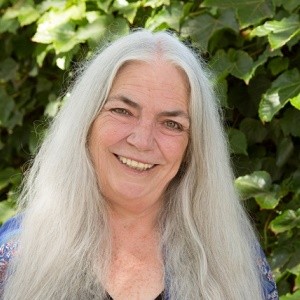 Our final Expert surveyed is Renee Beck, MFT, who is an Expert Therapist specializing in Clinical Consultation & Supervision. Renee is an approved supervisor at both the California Institute of Integral Studies in San Francisco and the Blue Oak Therapy Center in Berkeley; she has also served as the Clinical Director Emeritus at Holden High School (San Francisco East Bay Area) for over 33 years. Renee’s advice for those seeking a career in psychology:
Our final Expert surveyed is Renee Beck, MFT, who is an Expert Therapist specializing in Clinical Consultation & Supervision. Renee is an approved supervisor at both the California Institute of Integral Studies in San Francisco and the Blue Oak Therapy Center in Berkeley; she has also served as the Clinical Director Emeritus at Holden High School (San Francisco East Bay Area) for over 33 years. Renee’s advice for those seeking a career in psychology:
- Follow your passion, AND learn modalities outside of your specialty.
- Find a supervisor who will support you in developing your own style, and with whom you can explore countertransference in your clinical work; the Shadow is a tool rich in healing and growth for your clients and for yourself.
- Remember that your internships involve not just your clients, but the organizations’ sense of community, policies, politics and personalities as well.
- Build a website, and learn how to network live and online; you’ll need this skill whether you work in an organization or in private practice.











